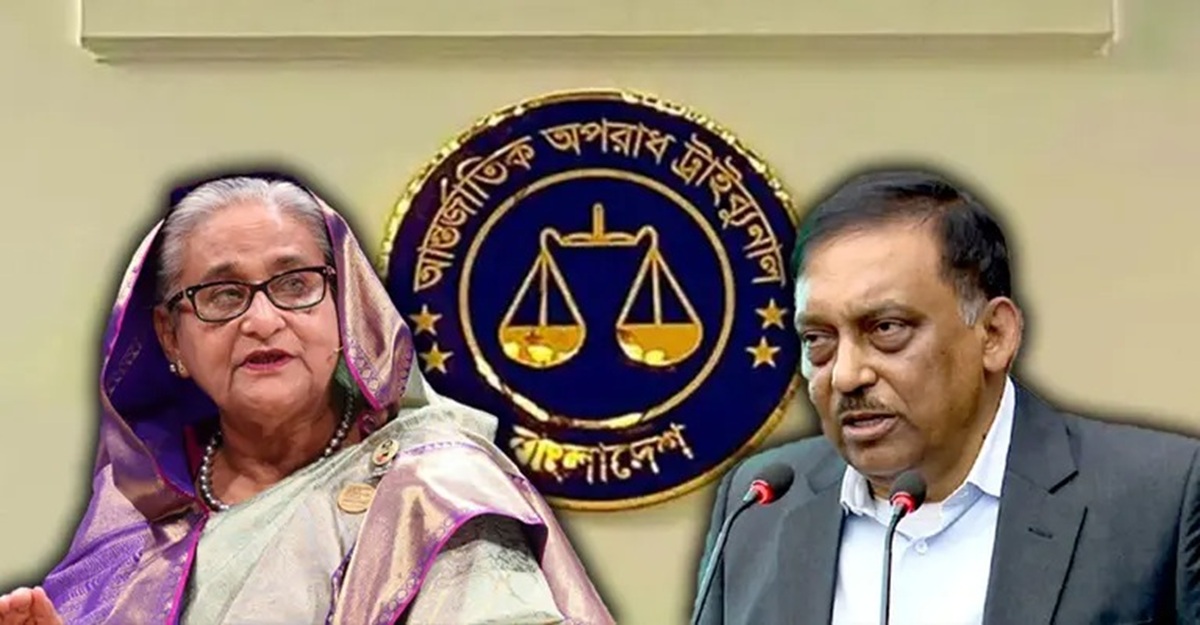Tensions rise as ICT going to set verdict date in Hasina case


Bangladesh has been placed on high alert ahead of the International Crimes Tribunal-1’s (ICT-1) pronouncement of the verdict date on Thursday (13th November 2025) in a case against ex-PM Sheikh Hasina and two others over crimes against humanity during last year’s July uprising.
The tribunal fixed the date on October 23 after the prosecution and defence completed their closing arguments before the three-member ICT-1 headed by Justice Md Golam Mortuza Majumder.
Tensions have escalated across the country over the tribunal’s announcement of verdict date as the Awami League called for a nationwide ‘lockdown’ on Thursday through social media in protest against the trial.
In the lead-up to the verdict date, several incidents of arson and crude bomb explosions were reported in different parts of the country, including Dhaka, raising public fears of renewed violence.
Law enforcement agencies, including police, the Rapid Action Battalion (RAB), and Border Guard Bangladesh (BGB), have been deployed across the capital and other major cities to maintain order.
Dhaka’s usually congested roads appeared unusually calm on Wednesday, with significantly lighter traffic during office hours amid growing public anxiety and security concerns.
Additional police personnel have been stationed at all entry and exit points in the capital.
At a press conference on Wednesday, Dhaka Metropolitan Police (DMP) Commissioner Sheikh Md Sajjat Ali said the force was fully prepared to avert acts of sabotage associated with the lockdown.
Fourteen platoons of the BGB have been deployed in Dhaka and surrounding districts since Wednesday morning.
Sheikh Hasina fled to India on August 5, 2024 amid mass uprising and the country has since experienced deepening political turmoil.
The Detective Branch (DB) of Dhaka Metropolitan Police conducted simultaneous drives across the capital in the past 24 hours till Wednesday morning, arresting 44 more leaders and activists of the Awami League and its affiliated organisations.
In this much-discussed case, the prosecution sought the maximum punishment for Sheikh Hasina and ex-home minister Asaduzzaman Khan Kamal on five charges of crimes against humanity.
Relatives of victims, including the father of martyr Abu Sayed testified in the case, along with key witnesses including Nahid Islam, Convener of National Citizen Party (NCP) and Amar Desh editor Dr Mahmudur Rahman.
In total, 54 witnesses testified in the trial.
According to the charges, the then Awami League government, along with its party leaders, loyal administrators, and members of law enforcement agencies, committed crimes against humanity to suppress the student-led July–August uprising.
Two international crimes tribunals are currently trying these allegations.
On July 10, the tribunal formally indicted Sheikh Hasina, Asaduzzaman Khan Kamal and former IGP Abdullah Al-Mamun, beginning the trial.
Former IGP Al-Mamun turned state witness and gave testimony revealing details of the incidents.
Besides this case, Sheikh Hasina faces two other cases before the International Crimes Tribunal—one over enforced disappearances and killings during the Awami League’s 15 and a half years in power and another over the 2013 killings at Hefazat-e-Islam rally at Dhaka’s Shapla Chattar.
